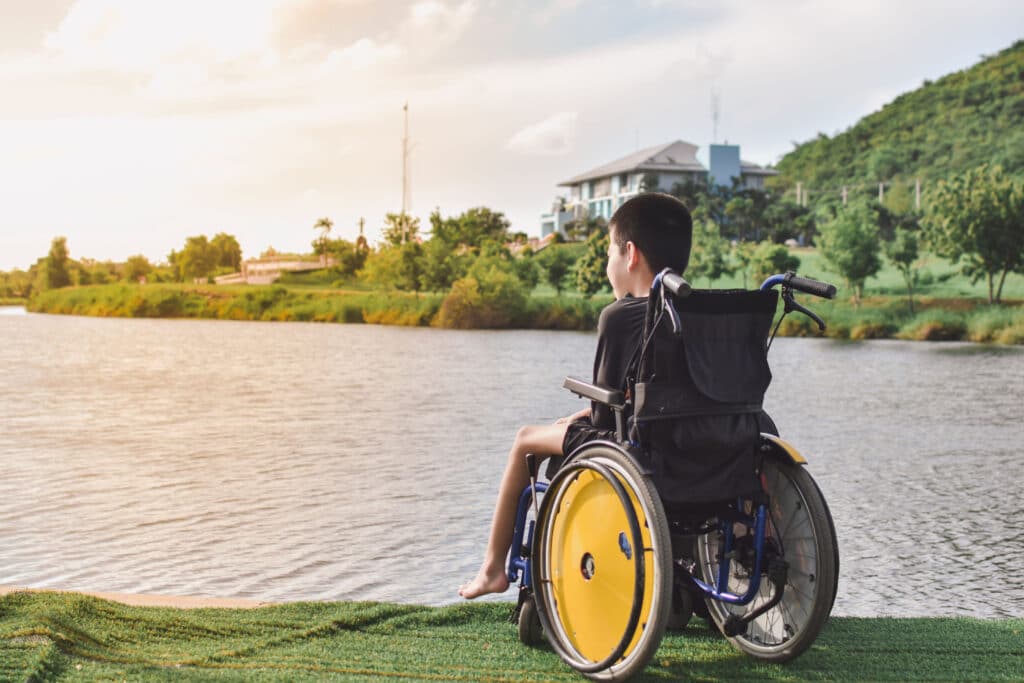Technology is super awesome, until its bites us in the butt. Such is the case in Indonesia, where cannabis fields were recently identified using a drone, and subsequently destroyed. Where does Indonesia stand on cannabis, and is this action actually indicative of a growing industry in the country? Read on for details.
Indonesia and cannabis
Indonesia is a 100% cannabis illegal country. All parts of the plant are considered a narcotic, including seeds. Those who break the law, even for small offenses, incur a maximum sentence of four years in prison, and fines. All cannabis derivatives are also predictably illegal in Indonesia. Cannabis is one of the most restricted drugs by the Indonesian government, sharing the spot with drugs like heroin and meth.
Marijuana is the most commonly used illegal drug in the country. In 2014 it was reported by the Transnational Institute that there were approximately two million cannabis users (possibly a very low estimate). Its use in the country goes back to at least the 10th century; although the drug was banned in 1927 by Dutch colonists. It remained this way after Indonesia gained its independence in 1945. In 1976 the country passed an anti-narcotics law, that did mention cannabis use for medical and research purposes.
It doesn’t seem that Indonesia ever had a medical market, though; and the regulation was changed in 1997, to restrict use to just scientific purposes. This was done through narcotics law #22. A subsequent narcotics law that passed in 2009, law #35, reasserted this limitation.

What are the full spectrum of laws for cannabis crimes? As per law #35 from 2009, personal use garners a maximum of four years in prison. No specific minimum amount is given, as all amounts are illegal. A person caught possessing, cultivating or selling/supplying the plant, faces 4-12 years in prison, and 800-8 billion Indonesian rupiah (IRD) in fines. If this sounds extensive, it actually equals $.05 – $520,000; which still ends up heavy for a personal use crime.
Once cultivation exceeds five plants (or equivalent to 1kg), a person faces 5-15 years in prison, or a life sentence with higher fines. Production, import/export, and distribution crimes incur 5-15 years in prison, and 1-10 billion in fines (max of about $650,000). If the amount goes beyond five plants (~1kg) this can go up to death. Sales are punishable by 5-15 years, or if over 1kg, up to death. Transporting incurs 4-10 years and fines; giving it away incurs 5-15 years plus fines; and anything that leads to permanent injury or death of another, is met with 5-20 years in prison, a life sentence, or the death penalty.
Everything listed is pretty extensive for a drug that doesn’t kill people. As these punishments indicate, Indonesia is one of the countries that will still use the death penalty for cannabis crimes. As of the 2023 criminal code, mass production can also incur a death sentence, a change from the previous 5-15 years, or life in prison.
Indonesia drone attack on cannabis fields
According to the Associated Press, a drone recently discovered illicit cannabis growing fields in the northern province of Aceh, Indonesia. The drones were specifically sent out for this purpose, in a joint venture by the National Narcotics Board, aka Badan Narkotika Nasional (BNN), and the National Research and Innovation Agency.
The drones found approximately 11 acres of land (4.5 hectares) where cannabis was being cultivated. It accounted for an estimated 21,100 plants, that were near harvest, according to Wayan Sugiri, BNN’s deputy of eradication. The drones were sent up in the first place because this area is known for growing cannabis. The operation to get rid of the plants went from August 3-13 of this year, in the village of Teupin Reuseup, in the north of Aceh.
How much effort did the Indonesian government put into eradicating plants that don’t kill anyone? According to Sugiri, the country employed more than 150 police officers, customs agents, and BNN officers. Together they uprooted about 20 tons of cannabis, which was subsequently burned on the 16th.

Sugiri said this was the fifth time in a year that such measures were taken. The AP article reports that in March, the government was responsible for eradicating another 106 acres (43 hectares), which accounted for approximately 190,000 plants. That raid was over nine times bigger than the most recent one.
Says Sagiri, these raids show “a form of the government’s firmness against illegal drugs and their circulation.” Given this, marijuana is still the most frequently used illicit drug in the country. While the number of cannabis users was approximately two million according to one investigation in 2014; the BNN Agency reported in 2022, that the country had 4.8 million drug users, total. This is actually a small number, possibly underestimated, considering the country holds a population of 270+ million people.
Will Indonesia loosen laws?
Indonesia is incredibly tough on cannabis crimes, even instituting the death penalty. However, cannabis use is not only prevalent in culture, but is a part of the country’s history up until colonization. The country even at one point had a law that technically allowed medical use. So, will Indonesia implement any cannabis reform policies in the future?
It’s hard to say what will come up, and what won’t. The last effort to change things, started in 2020, when a group of citizens challenged the constitutionality of cannabis laws in court. The intention was the removal of cannabis from the list of narcotics, and the ability to use it medically. Much like cases that did spur change in countries like Argentina via the activist group Mama Cultiva; the case was started by a group of mothers with sick kids.
The Constitutional Court rejected the case in July of 2022, on the basis that according to the court, not enough research exists on the matter, and much of the research offered, is not from Indonesia. Apparently not being the home to all research, was a sticking point. The case lasted about two years, used the testimony from nine witnesses, and offered a large array of research on the topic.
The case might have taken longer for a ruling, but earlier in July 2022, mother of cerebral palsy child, Santi Warastuti, (one of the moms behind the case), made a public plea, that inadvertently went much farther than expected. On a car-free day, she went to the busy streets of Jakarta with a sign imploring the public to help her immobile 13-year-old daughter get medical cannabis. Pictures went viral because a popular singer, Andien Aisyah, happened to pass by. She took some shots, and put them on Twitter.

Said Santi to This Week in Asia, “This is beyond my expectation. I went to the car-free day because I demanded a decision from the Constitutional Court on our request to review the material of Narcotics Law. The court’s headquarter is in Jakarta, so I thought I had to go there, to open the hearts of the judges, to show them my daughter, to show that she needs medical [marijuana]. So that was me demanding the court to announce a decision on my [case] soon.”
While the ruling did not change the laws, it did institute an order to the government to continue with research into the plant, to uncover its possible uses. It also gained a lot of attention for the plight of sick kids in need of treatment. This decision was supported by the country’s own National Narcotics Agency; the same agency that destroyed plants on close to 50 hectares of land in just the past few months.
Conclusion
Indonesia is definitely one of the countries lagging behind when it comes to cannabis reform; and the recent drone event and destroyed cannabis fields, go to show just how far Indonesia will go, to keep cannabis off its radar. And this despite an increasing argument to, at the very least, legalize the plant for the benefit of sick kids.
Hello weed supporters! Thanks for joining in at Cannadelics.com, where we work to bring you the best and most interesting stories related to the burgeoning cannabis and hallucinogen spaces. We’ve got updates, so come by regularly. And get yourself signed up to the Cannadelics Weekly Newsletter; to ensure you’re always first to get the news.









